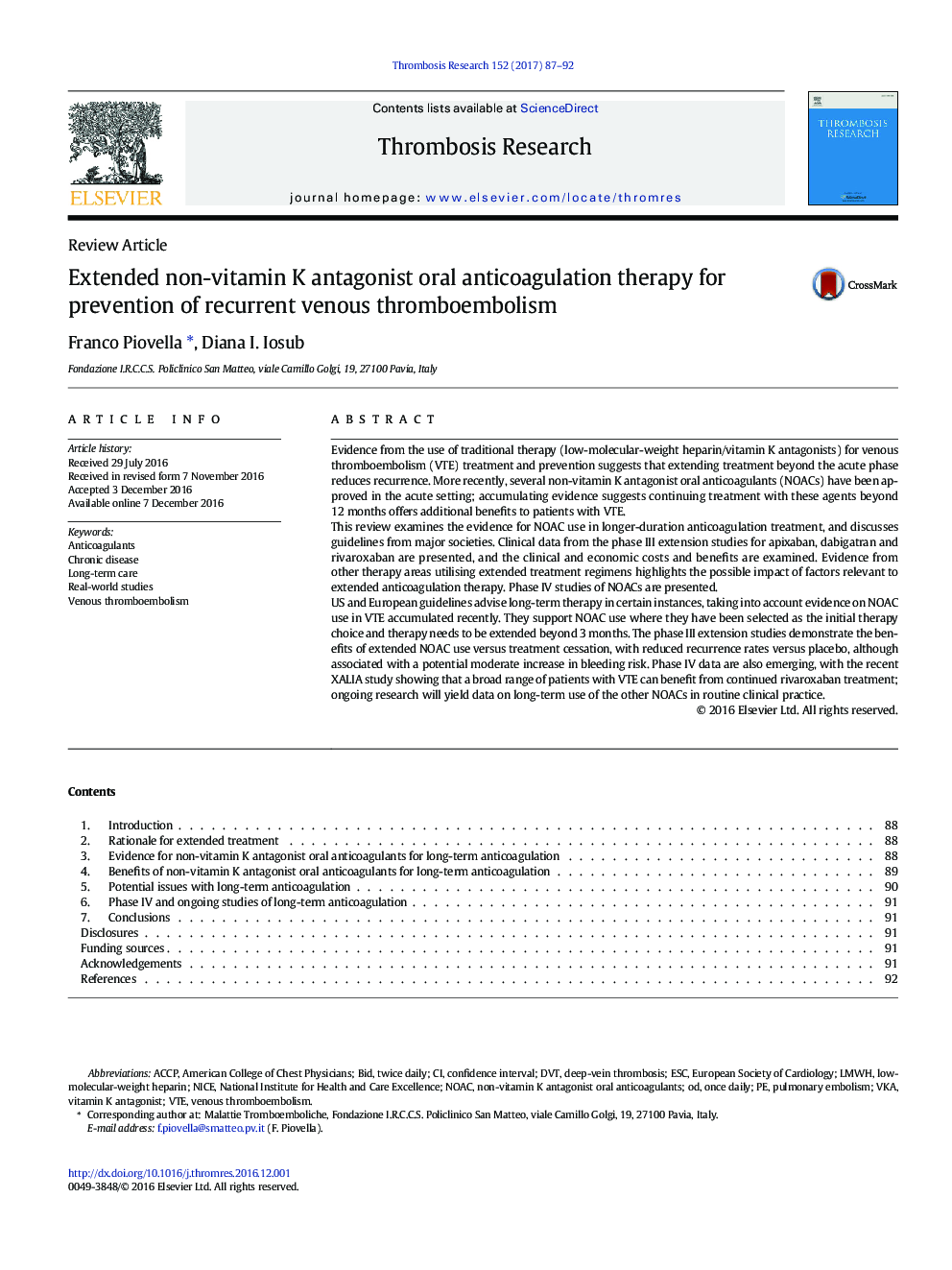| Article ID | Journal | Published Year | Pages | File Type |
|---|---|---|---|---|
| 5622167 | Thrombosis Research | 2017 | 6 Pages |
â¢Guidelines, phase 3 data and data from routine clinical practice on extended anticoagulation treatment in VTE are reviewed.â¢Phase 3 data show that extended NOAC use in VTE treatment offers benefits to patients in terms of reduced recurrence riskâ¢Data from routine clinical practice are also supportive of this finding and will continue to accumulate in the coming years
Evidence from the use of traditional therapy (low-molecular-weight heparin/vitamin K antagonists) for venous thromboembolism (VTE) treatment and prevention suggests that extending treatment beyond the acute phase reduces recurrence. More recently, several non-vitamin K antagonist oral anticoagulants (NOACs) have been approved in the acute setting; accumulating evidence suggests continuing treatment with these agents beyond 12Â months offers additional benefits to patients with VTE.This review examines the evidence for NOAC use in longer-duration anticoagulation treatment, and discusses guidelines from major societies. Clinical data from the phase III extension studies for apixaban, dabigatran and rivaroxaban are presented, and the clinical and economic costs and benefits are examined. Evidence from other therapy areas utilising extended treatment regimens highlights the possible impact of factors relevant to extended anticoagulation therapy. Phase IV studies of NOACs are presented.US and European guidelines advise long-term therapy in certain instances, taking into account evidence on NOAC use in VTE accumulated recently. They support NOAC use where they have been selected as the initial therapy choice and therapy needs to be extended beyond 3Â months. The phase III extension studies demonstrate the benefits of extended NOAC use versus treatment cessation, with reduced recurrence rates versus placebo, although associated with a potential moderate increase in bleeding risk. Phase IV data are also emerging, with the recent XALIA study showing that a broad range of patients with VTE can benefit from continued rivaroxaban treatment; ongoing research will yield data on long-term use of the other NOACs in routine clinical practice.
